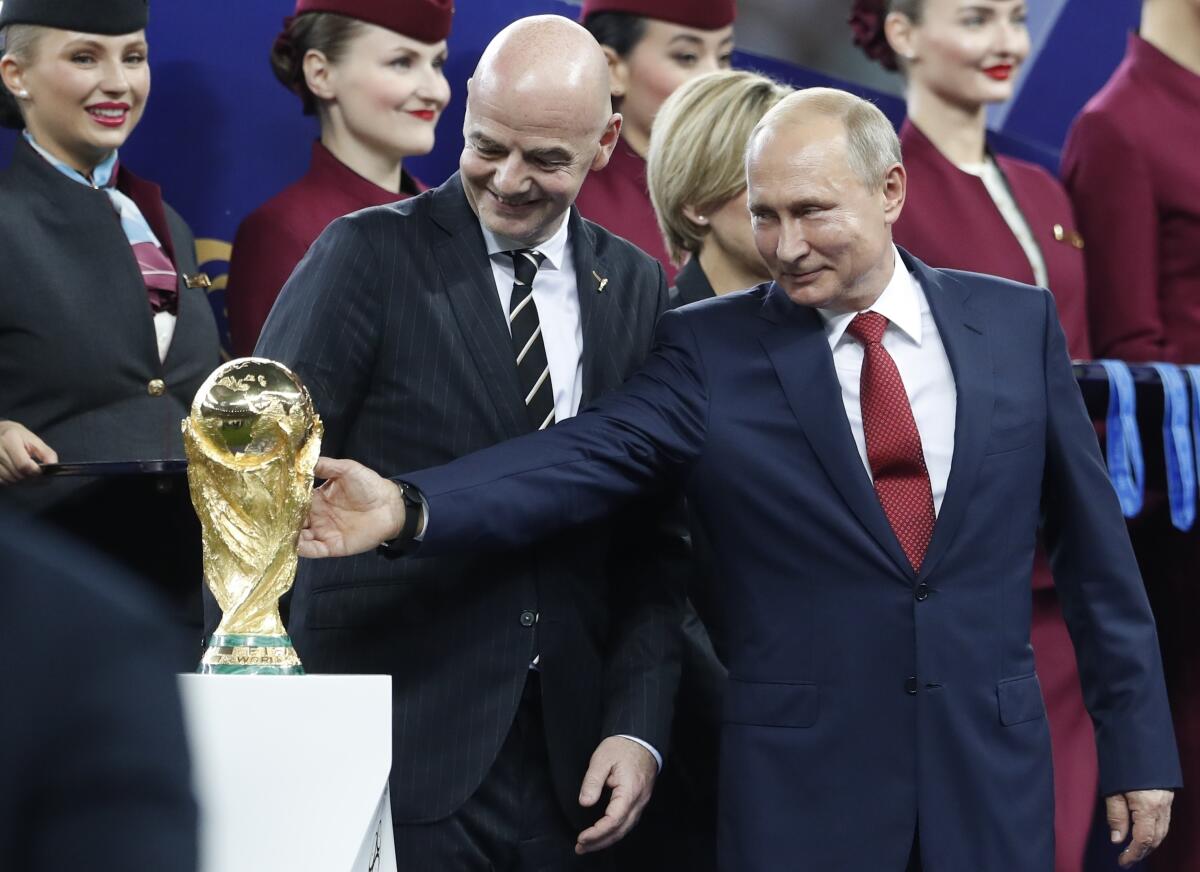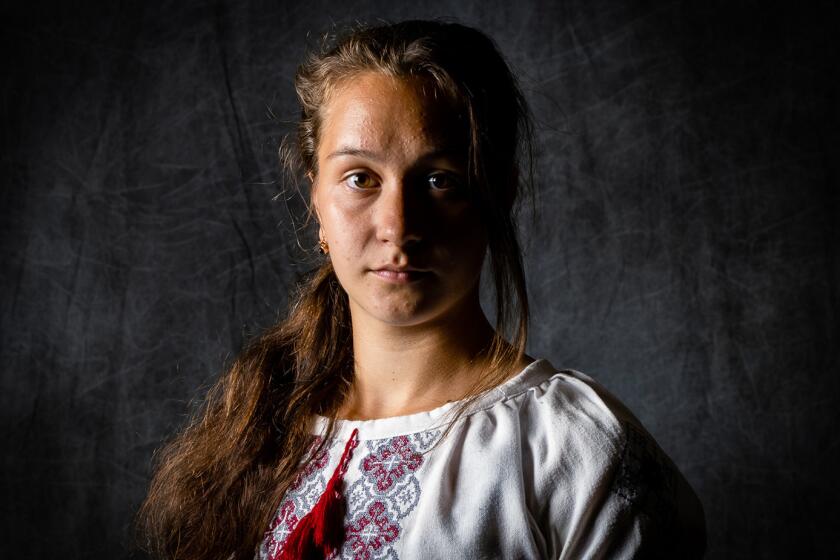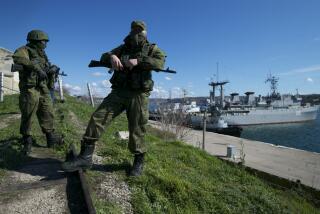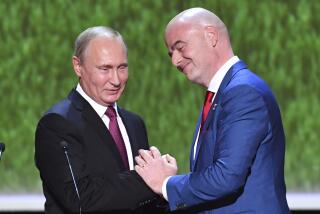Russia banned from international soccer, including World Cup qualifiers

- Share via
GENEVA — Russian teams were suspended Monday from all international soccer, including qualifying matches for the 2022 World Cup, as Moscow was pushed toward pariah status in sports after its invasion of Ukraine.
World soccer body FIFA and European authority UEFA banned Russian national and club teams from their competitions “until further notice.” Russia’s men’s national team had been scheduled to play in World Cup qualifying playoffs in only three weeks’ time.
“Football is fully united here and in full solidarity with all the people affected in Ukraine,” FIFA and UEFA said in a joint statement.
The high-level punishment involving sports and politics — not seen for decades — came after the International Olympic Committee pushed dozens of sports governing bodies to exclude Russian athletes and officials from international events. The IOC said this was needed to “protect the integrity of global sports competitions and for the safety of all the participants.”
Denying Russia a place on the international stage should deliver a financial and psychological blow to the country, along with tarnishing its image as an elite sports powerhouse.
FIFA’s move excluded Russia from the World Cup ahead of a qualifying playoff on March 24. Poland already had refused to play its scheduled game against Russia.
UEFA also took the last remaining Russians in European club competitions this season, Spartak Moscow, out of the second-tier Europa League. Spartak’s scheduled opponent on March 10 and 17, Leipzig of Germany, advances directly to the quarterfinals, UEFA said.
Russia now faces the kind of isolation suffered by Yugoslavian teams in 1992 after war broke out in the Balkans and by South African teams and athletes in the 1970s and 1980s during the apartheid era of racial segregation and discrimination.
Decisions by FIFA and UEFA can typically be challenged on appeal at the Court of Arbitration for Sport in Lausanne, Switzerland.
It was not immediately clear how the IOC’s request to sports bodies will affect Russian hockey players in the NHL and tennis players, including top-ranked Daniil Medvedev, in Grand Slam, ATP and WTA tournaments outside the authority of the International Tennis Federation.
The IOC also went directly after President Vladimir Putin, who turned the 2014 Sochi Winter Olympics into a personal project. Putin’s golden Olympic Order, which was awarded in 2001, has been withdrawn, the IOC said in a statement.
The IOC said it acted “with a heavy heart” but the effect of war on Ukrainian sports outweighed the potential damage done to athletes from Russia and Belarus.
Ukrainian tennis player Yuliia Zhytelna has found support from Russian Cal State Northridge doubles partner Ekaterina Repina during a very stressful time.
It was not a total blanket ban by the IOC. Where exclusion was “not possible on short notice for organizational or legal reasons,” then teams from Russia and Belarus should compete as neutral athletes with no national flag, anthem or symbols, including at the upcoming Winter Paralympics in Beijing.
Russian Olympic committee leader Stanislav Pozdnyakov said in a statement “there is only one comment to make — we categorically disagree,” adding it would help national federations to challenge “discriminatory rulings.”
Sports bodies across Europe had already moved against Russia on Monday by refusing to host or play against teams from the country.
Finland wants the Russian hockey team to be banned from the men’s world championships it will host in May, the Swiss soccer federation said its women’s team will not play Russia in July at the European Championship, and German soccer club Schalke said it had decided to end its long-standing partnership with Russian state-owned energy giant Gazprom.
In the World Cup, Russia’s potential future opponents Sweden and the Czech Republic had joined Poland in saying they would refuse to take the field.
The World Cup is scheduled to begin on Nov. 21 in Qatar.
More to Read
Go beyond the scoreboard
Get the latest on L.A.'s teams in the daily Sports Report newsletter.
You may occasionally receive promotional content from the Los Angeles Times.











